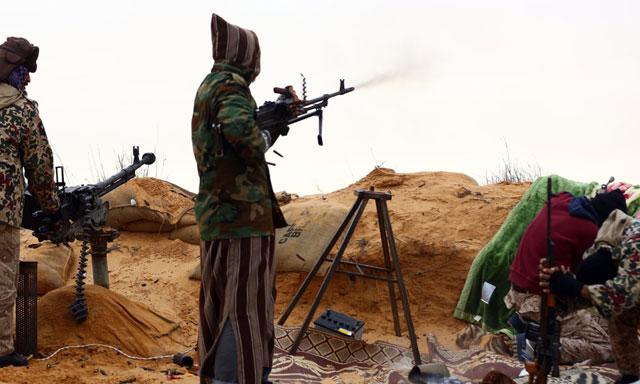You are here
Low oil prices put strains on Gulf currency pegs
By AFP - Mar 19,2016 - Last updated at Mar 19,2016
KUWAIT CITY — Weak oil prices pose a threat to Gulf Arab states' currency pegs against the dollar, but the energy-rich region is unlikely to abandon the policy yet, analysts say.
Bahrain, Oman, Qatar, Saudi Arabia and the United Arab Emirates all keep the values of their currencies fixed against the greenback, while Kuwait has a link to a basket of currencies including the dollar.
But doubts are growing about whether the policy still makes sense.
The slide in oil prices has battered the economies of the six Gulf Cooperation Council (GCC) member states at a time when an improving American economy and prospects of higher US interest rates are lifting the dollar.
To maintain the currency pegs, all GCC members except Qatar raised their interest rates in December, tracking the US Federal Reserve, even though their economies needed exactly the opposite.
The Gulf states now face a dilemma of whether to keep the pegs or opt for a flexible exchange rate regime, allowing their currencies to fall against the greenback.
"Maintaining a peg is a costly affair. The central bank has to be willing to buy or sell its currency in the open market to maintain the peg, which could deplete forex reserves," said M.R. Raghu, head of research at Kuwait Financial Centre.
"Oil exports, which account for about 80 per cent of [GCC] government revenues, have fallen by 70 per cent since mid-2014, thus making the currency peg vulnerable as it reduces the foreign exchange reserves," Raghu added.
For now, GCC states, with the exceptions of Bahrain and Oman, have huge reserves to defend their pegs.
But some speculators are betting that the Gulf states, particularly Saudi Arabia, will be unable to maintain the currency links indefinitely.
Jan Randolph, director of sovereign risk analysis at IHS Global Insight, believes the contrasting performances of the US and Gulf economies will increase pressure on the pegs.
Monetary policies are also expected to diverge, "stimulating in the GCC and gradual tightening in the United States", Randolph said.
GCC states need weak currencies and low interest rates to boost their waning economies, especially to develop non-oil export sectors, Randolph indicated.
The longer the economic divergence continues, "the more sense it makes to move to a more flexible exchange rate regime", he added.
Maintaining the dollar pegs brings financial stability and certainty to GCC economies amid regional geopolitical tensions.
It also helps contain inflation and boost confidence for foreign investment.
Falling living standards
Oil producers like Russia, Kazakhstan, Azerbaijan, and Nigeria have already devalued their currencies, raising oil revenues in local currency terms which helped to curb their current account and budget deficits.
But there is a cost.
Devaluation "typically causes higher inflation and often results in falling living standards, which can undermine social stability", Standard and Poor's said in a recent report.
Analysts say that if GCC states de-peg from the dollar, some currencies risk falling by 20 per cent or more.
That would boost oil revenues and the value of GCC fiscal reserves in their sovereign wealth funds in terms of local currencies, said Sebastian Henin, head of asset management at Abu Dhabi-based The National Investor.
The hospitality sector of the Gulf emirate of Dubai would also benefit as it becomes a more affordable tourist destination and more attractive to non-oil businesses, Henin indicated.
That is why some analysts and speculators anticipate that the United Arab Emirates could be the first to end its dollar link.
Another risk of abandoning the dollar peg is a capital flight from the Gulf, Raghu remarked.
"Capital outflows would be exacerbated as investors would like to move their assets to other markets. This would increase volatility and financial uncertainty in the region," he said.
Raghu thinks an end to the peg would happen "only as an extreme measure".
Mohamed Zidan, chief market strategist at ThinkForex, a Dubai-based brokerage firm, said the peg regime "is costly and hurting the economy".
"GCC states are defending it now for stability, but if the low oil price continues, they will opt for a managed floating regime within five years," he added.
Related Articles
DUBAI — Standard and Poor's (S&P) does not expect Gulf states to drop their long-term monetary link to the US dollar after the sharp dro
Gulf countries are bracing for tough times as vital oil revenues fall and after they missed a golden opportunity to diversify their economies in a decade of unprecedented windfalls, analysts say.
Libya's oil output has shrunk back further after blazing oil tanks at a major terminal helped world oil prices higher and burnt a bigger hole in its dollar currency reserves.












